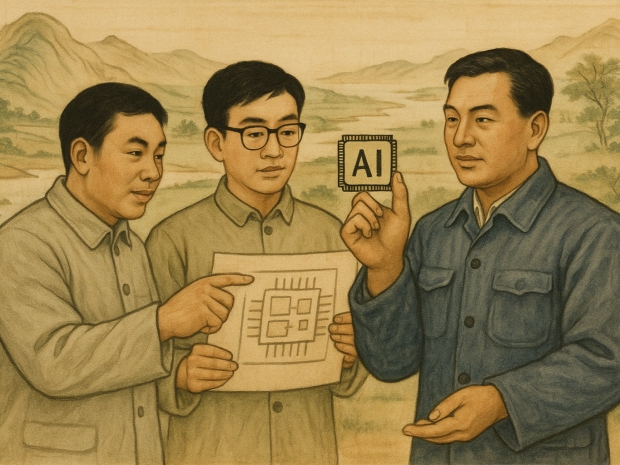According to the Financial Times, Alibaba, Tencent, and Baidu have begun testing domestic alternatives to keep pace with the growing demands for AI from both their operations and customers.
The US decided last month it wasn’t enough to block top-tier GPUs, so it slapped further restrictions on Nvidia’s H20 chips, the watered-down version tailored for Chinese compliance. The move, devised by Donald Trump's administration, appears designed to leave China with few options.
Industry insiders told the FT that the clock is now ticking. Most firms expect their current Nvidia stockpile to be depleted by early 2025. Obtaining new chips takes at least three to six months, assuming there is something on offer that meets the latest US regulations while still meeting Chinese expectations.
Baidu AI Cloud boss Shen Dou told analysts last week that there is a growing number of chip options available for inference work.
"We believe that over time, domestically developed self-sufficient chips, along with increasingly efficient homegrown software stacks, will jointly form a strong foundation for long-term innovation in China’s AI ecosystem," he said.
Alibaba chief Eddie Wu echoed the same contingency message: "We are actively exploring diversified solutions to meet rising customer demand."
At Tencent, President Martin Lau told analysts that the firm was trying to optimise its existing chips while exploring alternatives. "We should have enough high-end chips to continue our training models for a few more generations," he said.
Lau added Tencent could "potentially make use of other chips" for inference.
A think-tank linked to China’s state security ministry said the US export rules had prompted "a surge in independent innovation in domestic high-end AI chips," with Huawei’s Ascend line leading the pack. The Huawei kit has so far been snapped up mainly by state-owned players, such as China Mobile, and sensitive outfits in defence, healthcare, and finance, but commercial demand is now heating up.
Not that anyone wants to admit it. Companies are treading carefully, as Washington has warned that using Huawei chips "anywhere in the world" could trigger criminal penalties. That has understandably made everyone a bit cagey about shouting too loudly.
According to GF Securities, Nvidia could have a new China-friendly chip ready by early July. It’ll be based on the Blackwell architecture but will reportedly lack high-bandwidth memory (HBM), which somewhat limits its capabilities. There's no word yet on whether it’ll include Nvidia’s NVLink interconnect, either.
Nvidia supremo Jensen Huang wasn’t exactly full of good news. "We don’t have anything at the moment," he said during an earnings call.
Switching away from Nvidia is not a smooth ride. Migrating AI systems from Nvidia’s CUDA to Huawei’s CANN framework is a significant challenge and requires hands-on assistance from Huawei engineers. One exec reckons it could knock AI development back by three months.
Most companies are now opting for a hybrid setup, retaining Nvidia chips for training and shifting inference to local silicon. But even that plan has its bottlenecks.
Huawei is attempting to increase capacity and establish its fab, but supply still falls short of demand.
Other Chinese outfits, such as Cambricon and Hygon, are also in the mix, while Baidu and Alibaba are both developing in-house chips to fill the gaps.




